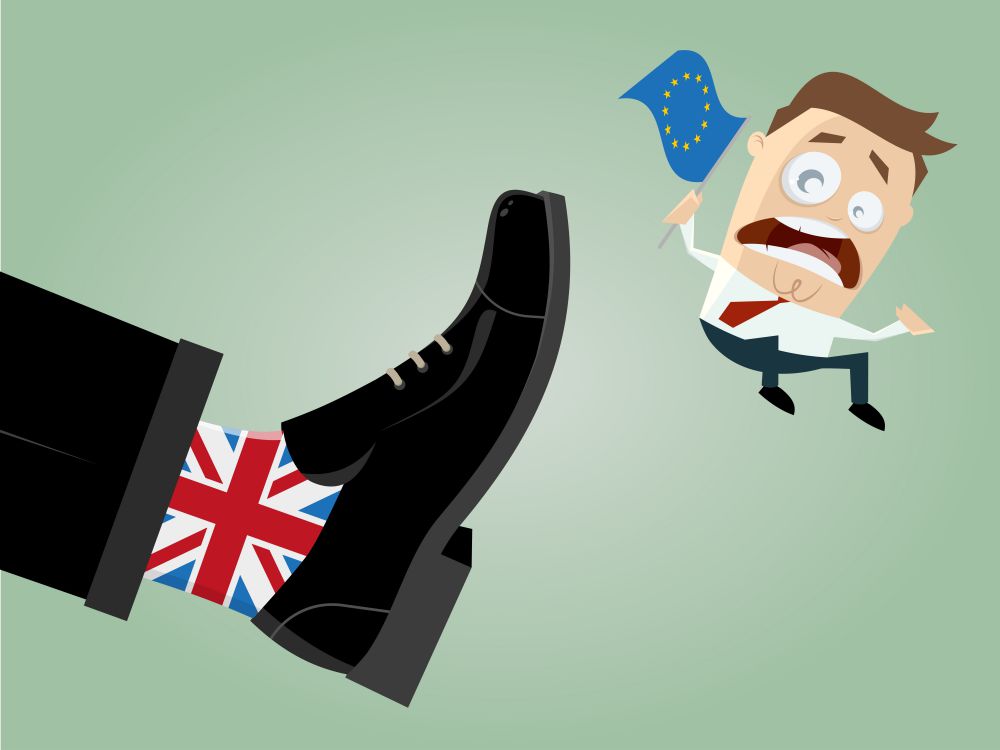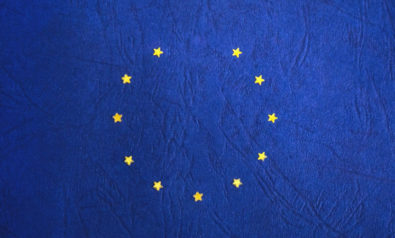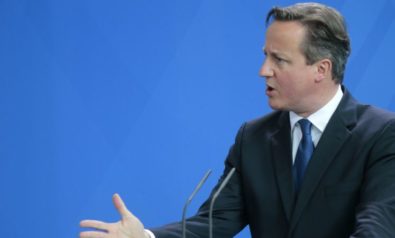The UK referendum could have serious but not calamitous economic effects on the nation over the long-term. The bigger worry is that an exit by one country might lead others to follow.
On June 23, the British people will vote on a historical referendum on whether they want the United Kingdom to stay in the European Union (EU). Just what the economic impact will be is hard to assess, say Wharton experts, because no nation has ever left the 28-member economic and political bloc.
“No one knows what the economic impact will be” and most analysis “is just speculation at this stage,” says Wharton Finance Professor Joao Gomes. “There are no firm studies. There is no hard data.” What’s more, it is the political consequences that may have the biggest impact on the EU’s future, at least in the short- and medium-term because should one nation leave the group, others could follow.
[add-subscribe-form]
Specifically, the UK’s referendum will determine if Britain will exit the European Union, popularly called a Brexit. The idea of a possible British exit from the EU was seeded in a campaign promise. David Cameron, now prime minister, promised the referendum should the Conservative Party win No. 10 Downing Street. There would be a vote by the end of 2017, Cameron pledged at the time, in part to win over the “euroskeptics” in his own party and among the British population more generally.
Olivier Chatain, strategy and business policy professor at HEC business school in Paris and a senior fellow at Wharton’s Mack Institute for Innovation Management, adds: “The people who want the referendum didn’t want to be in the EU in the first place.” They have made different arguments against membership at different times. But “the point is they don’t want to be in the EU.” In his view, however, it’s better for the UK to exert influence from inside of the EU rather than the outside.
Referendum Mechanics
Recently, Cameron flew to Brussels to negotiate concessions favoring the UK from European leaders in order to persuade the British people to vote to stay in the European Union. If the British people vote to leave, the UK has two years to renegotiate all of its treaties and trade deals, among other things. It would not be simple. As Gomes points out, a Brexit would require approval by the other 27 countries in the EU, and their parliaments might not ratify it.
No one knows what will happen with the politics of it all because no one has done this before, says Chatain. “People want the UK to stay in the EU because they don’t want uncertainty.”
With a migrant crisis underway, which transplanted more than a million people last year on a scale not seen since World War II, the British people were agitated at the prospect of being forced to comply with European quotas to take in more refugees than they want to support. Gomes adds that the “next few months will be tougher with migrant pressures increasing. Fundamental trends will work against an EU vote. There’s no doubt that that will throw in more fear … Migration is not going to help as it increases in the spring.”
Franklin Allen, Wharton finance professor and Brevan Howard Centre director at Imperial College in London, explains that the number of refugees allowed through the UK’s borders is “low anyway and not complying with EU quotas.” He adds that if there was a Brexit, the “change would be low-skilled people would find it difficult to come [to the UK]. For educated people, it won’t change that much.”
More generally, according to Chatain, “this is purely a political issue between Cameron and his own party.” He adds the rise of right-wing elements is happening in many nations, notably with Donald Trump in the United States and Marine Le Pen in France. “What distancing oneself from international organizations like the EU is supposed to fix is almost beside the point. It’s a deeply political thing. It’s not an economic calculus.”
Moreover, the eurozone recession is also scaring some Britons into thinking that they will be dragged down by a stagnant European economy while the British economy is recovering at a decent pace from the 2008-09 downturn.
Straws in the Wind?
As the countdown to the referendum ticks closer, the value of the pound has been sliding. According to The Daily Telegraph, Goldman Sachs believes the pound could lose a fifth of its value and plummet as low as $1.15-$1.20 by the time of the vote this summer. Allen adds that the pound will recover rather quickly if the British vote to stay in. However, “if it’s an exit vote, there will be a lot of uncertainty. The value of the pound will probably go down. In 20 years though, it won’t make that much difference.”
Wharton Management Professor Mauro Guillén points out that the pro-Brexit campaign is downplaying the fact that the “UK is tightly integrated in trade and investment with the EU. They don’t understand or fully grasp the extent of that relationship.”
One of the most vital aspects of the British economy is its financial services sector. Known as the City, London is an international hub for banking, investment services, capital markets, etc. By staying in the EU, the UK would retain access to the single market. “The UK is more integrated to financial services in the EU. They get access to euros so the UK does really well without being part of [the common currency regime],” says Gomes.
On the macroeconomic side, the UK has a large current account deficit, the difference between the money flowing in and out of the UK, and capital could flee the UK under a Brexit scenario, inflating the current account deficit even more. The Bank of England warns that a Brexit could endanger the UK’s economic stability.
Allen notes that the pro-Brexit campaign is arguing that the UK will still have access to the single market even if it chooses to leave the EU. “That’s true in the long-run, but in the short- and medium-term, it’s not all clear that will happen.” In addition, Guillén explains that the British financial services sector doesn’t like the idea of additional financial integration with the rest of the EU, and what that could mean for salaries, bonuses and more stringent bank regulations, but they have been resisting some of the regulations that would facilitate this anyhow.
Chatain notes that one of the demands the UK has made in recent negotiations is that it should continue to vote on euro-related matters even if the country is no longer part of the eurozone. “Yes, there’s a lot of financial business in London, but they are pushing their luck with eurozone countries. On the one hand, the UK is saying the EU is terrible and doomed to failure, but on the other hand, they want to help make decisions because they’re profiting from it. The UK is not making friends with that stance.”
Killing the Golden Goose?
Would financial services firms relocate out of the UK if a Brexit were to happen? Allen notes “It’s difficult to say how much of that would happen. It depends on what negotiations happen for the short-term and medium-term [prospects]. In the long-term, the UK has a lot of advantages in terms of language and culture. Other countries would find it difficult to compete in the long-run. For example, American and Chinese financial services firms investing in the UK would stay in the UK, partly for the simple fact that people are speaking English. The number of Chinese people who speak German is quite small. And I don’t think Europeans will change very much about what they’re doing in the UK.”
Some trade treaties between the UK and all of the countries it does business with, however, would have to be renegotiated under a Brexit. The trade deals the UK now has fall under the agreements the EU has negotiated jointly. In October, US Trade Representative Michael B. Froman said there would be no free-trade agreement between Britain and the US if it left the EU, and that Americans wouldn’t want to negotiate one, according to The New York Times.
But nearly half of the UK’s exports go to Europe and the EU has a trade surplus with the UK, so new trade agreements between the UK and EU would certainly have to be negotiated. “This will have a disruptive effect. You’re putting everything at risk and you don’t know if you’ll come back to the current status,” says Guillén.
The UK will look at countries like Norway and Switzerland, which are not EU members, for what kind of trade rules make sense for non-EU members. However, no one knows what kind of position the bargaining parties will hold, says Chatain. Both non-EU countries comply with the notion of the free movement of people. They also contribute to the EU budget, with Norway paying twice as much per head as the UK, according to Euronews.
What kind of deal the UK would get following an exit will depend on who’s doing the negotiating, says Allen. Guillén adds that both Norway and Sweden have had very different historical developments of their economies than what has happened in the UK. Switzerland has always been a neutral country, while Norway doesn’t have a global financial services sector.
Internally, a Brexit will pose yet another set of problems. Scotland, which is more pro-euro, will hold another referendum to leave the UK, says Allen. The ruling Scottish National Party has been quiet in supporting the campaign to remain in the EU because it doesn’t want to be seen as supporting the Conservative Party, which is unpopular in Scotland, and would like to have another referendum to secede from the UK, Allen explains. “Scotland will most likely leave the UK. If they held the referendum again today, they might vote to leave.”
Northern Ireland is another country that might potentially hold a referendum to leave the UK should it vote to leave the EU. According to The Daily Telegraph, around 58% of Northern Ireland’s population support remaining in the EU, higher than the UK average. Northern Ireland also neighbors Ireland, a separate EU country, with no border control necessary if both are in the EU. Some experts have said a Brexit could destabilize the current peace between Ireland and Northern Ireland that has only been in place since 1998. A Brexit could “complicate the relationship quite a bit,” notes Guillén.
As far as the global stage, the UK’s clout in the world is “marginal,” says Gomes. As a member of the European Union, the UK has more influence and can vote in trade matters. For instance, Allen points out the situation with Iran. “I don’t think Iran would care if the UK [carried out sanctions on its own] but Iran clearly cares if the EU does it.” Guillén adds that though the British have their own approach to international affairs, they “have more to lose if they leave” since they would not have much political clout.
The Biggest Risk?
Outside of the UK, fallout from a Brexit could affect other EU countries in ways that may pose the biggest risk of all. Just as threats of a Greek exit prompted worries that other countries might follow its lead, the same holds true in the case of a UK exit, underlining the huge potential for political fallout. Discontented eastern European countries, for example, might follow suit and hold an EU referendum themselves. Gomes points out that the French presidential election is coming up in 2017 and Marine Le Pen might use the issues brought up in the EU referendum to close borders and push away immigrants.
Thus, apart from economic concerns, European leaders won’t smooth the path for a Brexit in an effort to discourage others from following.
On the likelihood of other referendums or exits, Chatain adds: If other EU members also face a major crisis, due to a migrant crisis for example, “and turn to the far right, yes it is possible. I would have never thought I would write that even three years ago.”
 Moreover, the subject of the UK exiting the EU may not end on June 23. “One wild card will be who the new prime minister will be, even if the vote is ‘no’ to leaving,” says Gomes. Cameron has said he will not run for re-election in 2020 and the new Tory leader may be more pro-Brexit than Cameron has been.
Moreover, the subject of the UK exiting the EU may not end on June 23. “One wild card will be who the new prime minister will be, even if the vote is ‘no’ to leaving,” says Gomes. Cameron has said he will not run for re-election in 2020 and the new Tory leader may be more pro-Brexit than Cameron has been.
“Economically, it won’t be a catastrophe, but it’s manageable,” says Chatain. “The political consequence will be worse. Everyone will be worse off politically and the UK and EU will be weaker. There will be a lot of economic uncertainty, but it won’t be a disaster.”
Gomes adds: “It makes no sense to make great changes to leave this relationship. Even if the UK were to leave the EU, the situation will be very similar to what it is now, maybe with the exception of border control and possibly some aspect of social programs like benefits. That aside, in terms of free trade, mobility of free capital, the impact on the City, the impact will be slow … Nothing on the business side will basically change.”
*[This article was originally published by Knowledge@Wharton, a partner institution of Fair Observer.]
The views expressed in this article are the author’s own and do not necessarily reflect Fair Observer’s editorial policy.
Photo Credit: 360b / Shockfactor.de / M-SUR / Shutterstock.com
 We bring you perspectives from around the world. Help us to inform and educate. Your donation is tax-deductible. Join over 400 people to become a donor or you could choose to be a sponsor.
We bring you perspectives from around the world. Help us to inform and educate. Your donation is tax-deductible. Join over 400 people to become a donor or you could choose to be a sponsor.
Support Fair Observer
We rely on your support for our independence, diversity and quality.
For more than 10 years, Fair Observer has been free, fair and independent. No billionaire owns us, no advertisers control us. We are a reader-supported nonprofit. Unlike many other publications, we keep our content free for readers regardless of where they live or whether they can afford to pay. We have no paywalls and no ads.
In the post-truth era of fake news, echo chambers and filter bubbles, we publish a plurality of perspectives from around the world. Anyone can publish with us, but everyone goes through a rigorous editorial process. So, you get fact-checked, well-reasoned content instead of noise.
We publish 2,500+ voices from 90+ countries. We also conduct education and training programs
on subjects ranging from digital media and journalism to writing and critical thinking. This
doesn’t come cheap. Servers, editors, trainers and web developers cost
money.
Please consider supporting us on a regular basis as a recurring donor or a
sustaining member.
Will you support FO’s journalism?
We rely on your support for our independence, diversity and quality.





































